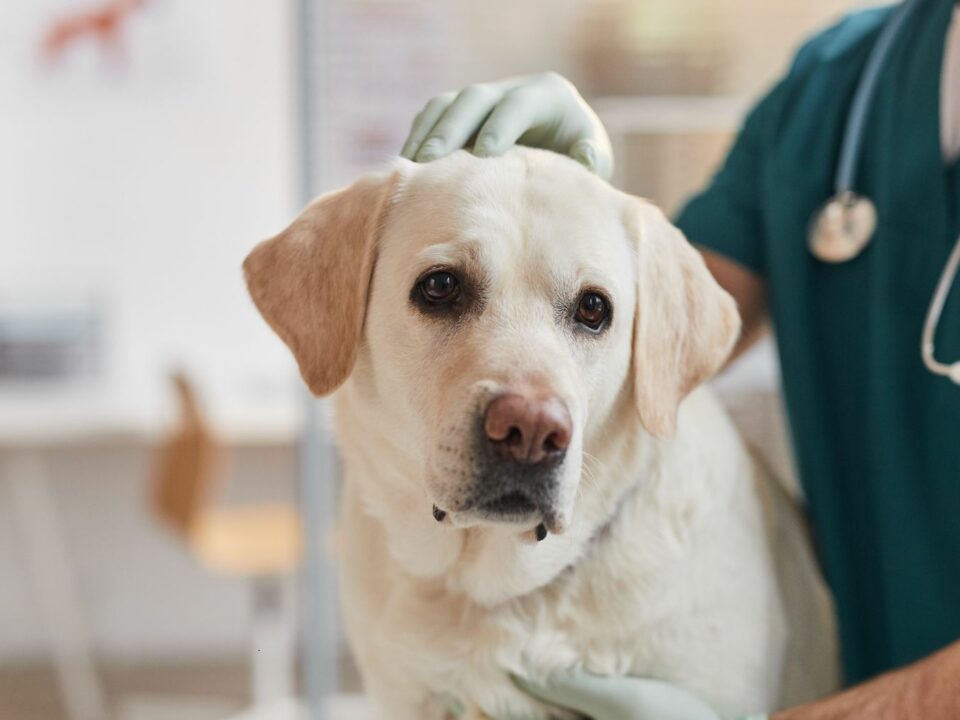
Pet First Aid: What You Should Know
January 27, 2025
Routine Vet Care vs Emergencies: Key Differences Explained
February 27, 2025Essential Guide on How to Choose the Right Local Vet for Your Pet

When moving to a new city or during the excitement of getting a new pet, finding the perfect vet might not always be the first thing on your list. But choosing the right veterinarian is not a decision to be taken lightly. They’ll be critical to ensuring your pet lives a long, happy and healthy life—like your GP. It’s also a good idea to find your veterinary clinic before your furry friend comes home.
When selecting the right vet, you must consider location, cost, training and services, and appointment availability at the clinic and/or animal hospital. This guide will help you make all the right choices to decide on the right coverage for your pet.
What Does a Local Vet Do?
A locally owned or small-run veterinary clinic is a great option for pet owners who value shorter commutes and high-quality care. As your pet will need regular healthcare from newborn to old age, choosing from nearby veterinary practices will allow your vet to get to know their furry patient well and deeply understand its needs and behaviours.
Larger clinics or animal hospitals often have more staff and additional services or technology, including x-ray rooms and surgical theatres. While wait times may be shorter and some basic care costs may be lower, their focus will be on treating serious conditions and less on preventative or ongoing care.

Understanding Both Your and Your Pet’s Needs
Different pets and families have varying needs. Determine your budget for care, potential pet insurance options, and whether your pet will require preventative or emergency care. These are important questions to ask any vet you meet before selecting one.
Be realistic about location, how far you are willing to travel to the clinic, and whether the practice’s hours suit your schedule. If your schedule is unpredictable, choosing a new vet who allows walk-ins is a good idea.
If your pet species isn’t very common, or they have a specific or chronic medical condition, you may need to find a specialist vet.
Evaluating the Vet and Practice
Of course, location and costs aren’t the only signs of a great vet for your family. You should research the qualifications, experience and specialty certifications of each vet you are considering to be best prepared when your furry friend is sick. Most general practice vet clinics will also treat dentistry and general surgery and may provide grooming, boarding, doggie daycare and training classes.
Search online to see if they are accredited by a reputable organisation, such as Animal Health Australia or the Australasian Veterinary Boards Council. You can even visit the clinic and see its facilities, equipment, and technology and to ask about their approach to pet health and treatment options for both preventative and emergency care.
Assessing the Staff and Communication
Whilst most vet clinics primarily communicate with pet owners over the phone, veterinary telemedicine is becoming increasingly common. At Rossmore Vet, we can be reached via our daytime or emergency after-hours phone, over email and by walking in to the clinic.
If English is your second language, try to find a vet who can clearly communicate with you. Health issues in your cat or dog can be serious and complex, so you want to feel comfortable asking questions to a vet who can accommodate them. You need to feel confident that your vet has the best interest of your animal at heart.
Researching the Clinic’s Reputation
Though a useful launch pad in researching vets, online reviews and testimonials can only get you so far.
Ask your friends, families and those you trust for recommendations and guidance on local vet options.
Furthermore, it may be worth asking other animal services for their recommendations—groomers, animal shelters, caretakers, nutritionists, pet sitters and neighbours. Word of mouth typically allows you to find the details that are most important to you.
Understanding the Costs and Payment Policies
It’s important to ask about the clinic’s payment policies and options, from pet insurance to general financing. Find out the cost of appointments, treatments, and emergency services—you don’t want a nasty shock when you and your pet are at your most vulnerable.

Asking about any available discounts or promotions at the clinic is a helpful way to ease financial pressure and understand what treatments the practice prioritises.
Prioritising Pet Health and Building a Long-Term Relationship
Perhaps the most important aspect of a vet or animal hospital’s services is its approach to preventative care and health maintenance. These are the treatments and services for common health issues that you’ll be making appointments for, such as vaccinations and dental care.
To evaluate the vet’s willingness to work with you to achieve your pet’s health goals, ask them about their experience with your pet’s breed, nutrition and diet, and any specific health needs. Moreover, as this veterinarian will ideally be the same doctor your pet visits their whole life, ask about their experience with long-term care, chronic health issues and their services for aging animals.
Frequently Asked Questions
What questions to ask when looking for a vet?
Upon first meeting a vet, ask the clinic or animal hospital about their hours, appointment system, available services, emergency policies, payment options and plans, insurance, staff, x-ray and pathology services, pharmacy options and referral process.
Can you just change vets?
Yes. Before you do, we recommend having a conversation with your current vet about your concerns about their quality of care. They may be able to explain their procedures to you or decide to alter their treatment approach for your pet. A second opinion is also worthwhile. However, if you remain uncomfortable with your veterinary clinic, ask for your pet’s medical records and seek a new one.
Is there a veterinarian database?
It can be a bit tricky to find, but there are databases to cross-reference local providers. The Veterinary Practitioners Board of New South Wales has a search option to find a vet or hospital. You can also check Animal Health Australia or the Australasian Veterinary Boards Council.
Final Check: Is This the Right Vet for You?
Ultimately, making an informed decision as pet owners is a lot about trusting your instincts about your overall impression of the vet and clinic. You know your pet the best—consider their comfort and stress levels during visits, and the vet’s willingness to work with you and address your concerns.
Not sure if you feel confident in a veterinarian’s ability to provide quality care for your furry friend?
If you live around Bringelly, Camden, Green Valley, Hoxton Park, Kemps Creek, Leppington, Narellan, Oran Park, or Prestons, Rossmore Vet Hospital is your local clinic.
Why not give us a call for a consultation or friendly advice? Our team comprises 10 veterinarians and 35 staff members all dedicated to ensuring your pet’s care is top-notch.



